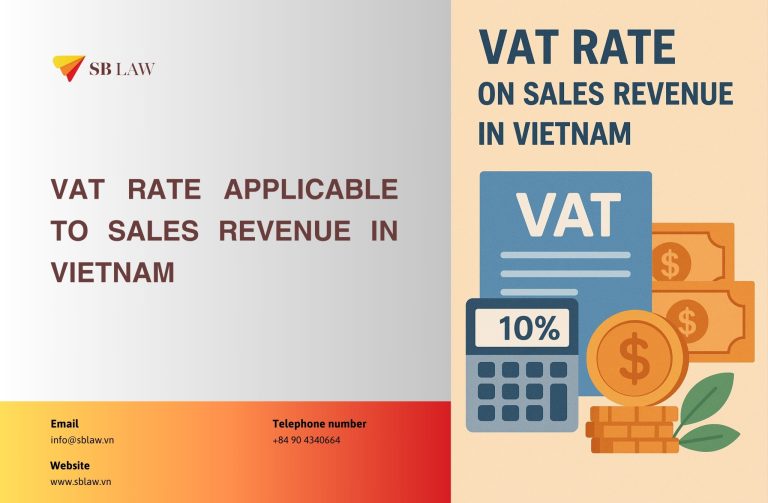Topic: What Regulations Must a Newly Established Transaction Office of an Enterprise Comply With?
Background of the Matter
Our company seeks to request legal consultation regarding the operation of a newly established transaction office in City X, with the following details:
The company has duly registered its business locations, including the head office and a warehouse business location, with the competent state authorities. Recently, our company entered into a lease agreement for a private residential property in City X to serve as a “Transaction Office.” Therefore, we would like to seek your legal advice on the following matters.
Question: Is it possible for the Company not to register the transaction office in City X as a branch? Could it instead be registered as a business location similar to the Company’s registered warehouse?
Answer:
Pursuant to Article 44 of the Law on Enterprises 2020, a company may establish affiliated units in the form of: (i) branches; (ii) representative offices; or (iii) business locations. Specifically:
“1. A branch is a dependent unit of the enterprise, responsible for performing all or part of the enterprise’s functions, including authorized representation. The business lines of the branch must be consistent with those of the enterprise.
2. A representative office is a dependent unit of the enterprise, acting as an authorized representative to protect the enterprise’s interests. A representative office is not allowed to conduct business activities.
3. A business location is a place where specific business activities of the enterprise are conducted.”
Based on the information you have provided, SB Law understands that the “transaction office” of the Company in City X is intended to function as a contact and service point with customers. Therefore, in addition to registering a branch at this address, the Company may alternatively choose to register it as a business location, similar to the warehouse location the Company has already registered.
For registering a business location, the Company is advised to follow the procedures stipulated in Article 31 of Decree No. 01/2021/NĐ-CP, as follows:
Step 1: Within 10 days from the date of the decision to establish the business location, the Company must submit a notice of establishment of a business location to the Business Registration Office of City X.
The notice must be signed by the legal representative of the Company.
Step 2: Within 3 working days from the receipt of a valid application, the Business Registration Office will update the information of the business location in the National Enterprise Registration Database.
If the Company wishes to obtain a Certificate of Business Location Registration, please ensure that the relevant box is ticked in the application form. The Business Registration Office will then issue the certificate accordingly.
Question: Can the Company have the transaction office in City X operate entirely under the accounting system of the head office in Hanoi? This means that all costs incurred, input/output invoices, and taxes arising at the City X office would be recorded directly by the Company’s head office.
Answer:
Yes, the “City X Transaction Office” may operate entirely under the accounting system of Company (head office in Hanoi), with all its financials and tax obligations consolidated at the head office level.
Pursuant to Article 11 of Decree No. 126/2020/NĐ-CP, where a company carries out business activities across multiple provinces, it has three options for tax declaration:
- Declare tax at the local tax authority where the business location is registered;
- Declare tax at the tax authority managing the head office without apportioning payable tax to the tax authority where the business location is registered;
- Declare tax at the tax authority managing the head office and allocate tax amounts payable to the tax authority where the business location is registered.
According to Clause 2, Article 11 of Decree 126/2020/NĐ-CP:
“Article 11. Place of tax declaration filing
Taxpayers shall submit tax declaration dossiers at the locations prescribed in Clauses 1, 2, and 3, Article 45 of the Law on Tax Administration and the following provisions:…
2. For taxpayers conducting business in multiple provincial-level localities other than where the head office is located, who apply centralized accounting at the head office (except for the cases stated in Clauses 1, 3, 4, 5, and 6 of this Article), the place of tax declaration filing shall be the tax authority managing the head office…”
As the Company does not operate in any special sectors (such as power generation, real estate trading, fuel distribution, etc.), it is eligible to apply centralized tax declaration and payment at the tax authority of the head office in Hanoi.
Question:Could SB Law please advise whether there are any other legal regulations, either mentioned or not yet addressed, concerning the operation of the City X Office that our Company should be aware of?
Answer:
a. Note 1: Business License Tax
Pursuant to Article 11.1 of Decree No. 126/2020/NĐ-CP, the business license tax must be declared at the tax authority where the business location is registered. Accordingly, the annual business license tax payable by company for the City X Office is VND 1,000,000 (one million VND/year), as stipulated in Article 4 of Circular No. 302/2016/TT-BTC.
b. Note 2: Issuance of VAT Invoices
As the “City X Transaction Office” is a dependent unit under the Company’s head office, it is not permitted to issue VAT invoices in its own name. Instead, all VAT invoices must be issued by the Company (head office).
c. Note 3: Compliance with Fire Prevention and Fighting (FPF) Requirements
Based on the documentation provided by the Company, the total area of the leased premises used for business at the City X Office is 341.1 m². Therefore, according to Section 18, Appendix III of Article 5.1, Decree No. 136/2020/NĐ-CP, the business location must comply with the following fire prevention and fighting requirements upon commencement of official operations:
- The premises must display internal rules, prohibition signs, safety instructions, evacuation maps, and fire safety signage in accordance with applicable fire safety standards and regulations;
- A dedicated on-site or industry-specific FPF team must be established, trained in fire prevention procedures, and remain on standby to respond to any incidents;
- A fire-fighting plan must be approved by a competent authority;
- Electrical systems, lightning protection, static discharge prevention, heat- and flame-generating equipment, and usage of open flames or heat sources must meet FPF safety standards and technical regulations;
- The premises must be equipped with appropriate infrastructure and systems for fire response, including access roads, water supply, communications, fire safety data systems, incident reporting systems, fire alarms, fire suppression systems, smoke and flame containment, evacuation routes, rescue equipment, and other FPF tools as required by applicable regulations and standards.
Question: Our Company intends to display the Company’s logo on the front of the first-floor office and possibly on the rooftop of the City X Office building. In this case, if we do not register a branch or business location, are we still allowed to display the Company’s logo signage?
Answer:
Displaying the Company’s signage at a location that has not been registered as a subordinate unit (i.e. branch, representative office, or business location) may be grounds for administrative penalties by competent state authorities for violating regulations on business registration. Specifically, under Article 54.1(a) of Decree No. 122/2021/NĐ-CP:
“Article 54 – Violations concerning the establishment and termination of branches, representative offices, and business locations of enterprises:
1. A fine ranging from VND 20,000,000 to VND 30,000,000 shall be imposed for any of the following acts:
a) Conducting business at a location without notifying the business registration office where the enterprise (in case of a business location under the enterprise) or the branch (in case of a business location under the branch) operates.”
Accordingly, if the Company establishes a business location but fails to notify the Business Registration Office under the Department of Planning and Investment of City X, it may be subject to a fine ranging from VND 20,000,000 to VND 30,000,000. In addition to the monetary penalty, a remedial measure may be imposed requiring the Company to submit a formal notice of establishment of the business location to the competent authority.




